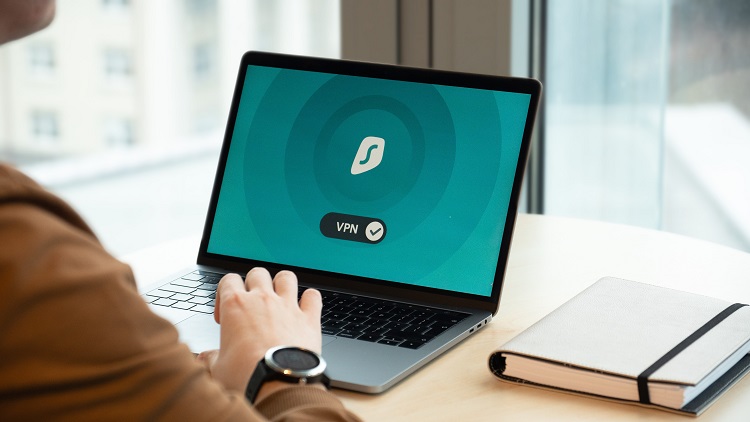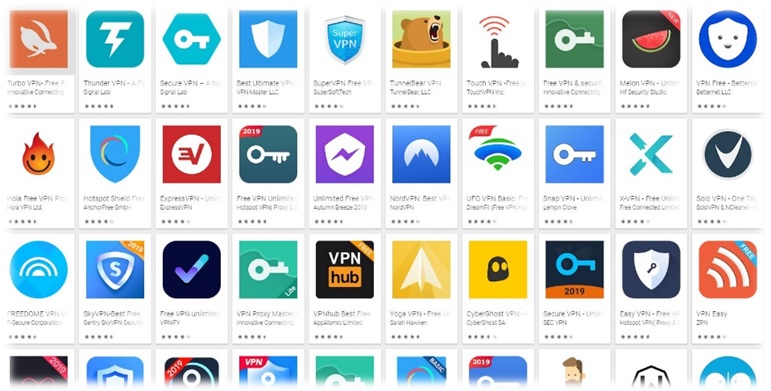In this new era of the Internet, one of the biggest challenges streamers faces is geo-restrictions. Content across the globe is getting localized for users, and this spells disaster for those looking to fully access the World Wide Web.
When it comes to the battle of geo-restrictions, two warriors named VPN and Smart DNS make their presence known. For many years, people have been using the two for the sake of security, privacy, and browsing control.
In the pandemic, these services saw a surge of users, and it destroyed all regional limitations to give users access to global content. But the question is which one to go for?

This article will weigh out the options against each other and share some of the best Smart DNS and best VPN to use for Netflix.
Both services offer great incentives to our streaming service, and one might argue for them to be the same. But here, we will differentiate and help you decide. Before we start, it is important to define the two for better understanding as follows:
Virtual Private Network (VPN)
Virtual Private Network (VPNs) alter the IP address of the user by redirecting it through their server. This helps the user appear as a local to a different region through a virtual IP address, and it can bypass any regional limitation.

VPNs have gained much popularity in the pandemic due to streaming services. People outside the US can access different streaming platforms without worry. It provides online privacy and control from any cyber-attack or malware.
Smart Domain Name System (DNS)
Smart DNS is a merger of Proxy server and DNS, which offers security and privacy. The use of Smart DNS is pretty much the same as VPN. It uses a proxy server to redirect your online traffic. It also bypasses every geo-restriction there could be.
Differences Between DNS and VPN
Privacy and Security
We shared that VPNs and DNS are loosely the same things. Only the process of privacy is what creates the difference. VPNs encrypt the IP address that lets the user stream anonymously without any concern of cyberattack.
Smart DNS doesn’t have such an encryption feature. At this point, you run the risk of being exposed and vulnerable to cyberattacks if you use Smart DNS. Cyberattacks are not to be tread lightly with, which is why the clear winner for this category is VPN.
Costing
When it comes to pricing, we find Smart DNS to be more cost-effective than VPNs. A Smart DNS starting price is 5$ per month, while a premium VPN’s starting price is 10$ per month. There are incentives for purchasing a one-year or two-year deal. Even so, we find Smart DNS to be cheaper in comparison.
Speed
VPNs have dedicated servers through which the IP address of the user is fed. In this process, server farms tend to take a big chunk of bandwidth. If you have a slow internet connection, VPNs are only going to make it slower. Smart DNS does not affect the bandwidth and therefore is crowned as the winner of this category.
Firewall Bypass
A firewall is another problematic aspect to bypass. However, this is where you find a VPN more resourceful in bypassing a firewall. It does so by altering the IP address, which a Smart DNS cannot do.
The IP block is very crucial if you plan to surf and stream the online world. Whether it is workplace surfing or online streaming, IP blocking can be a concern, so the VPN is a clear winner here.
Devices
Nowadays, we have many devices that serve our streaming needs like gaming consoles, TV boxes, Smart TVs, and many more. If you plan to stream from different devices, some might not be able to support as well as others.
For example, Roku and PlayStation do not support VPN apps. The workaround in this situation is to connect a VPN with your router. It is still a tricky area. But Smart DNS has no trouble connecting with any streaming device and can smoothen the watch experience.
Types of VPNs and Smart DNS
By now, you must’ve decided on whether VPNs are best for you or Smart DNS. As promised, we will share our pick of some elite VPNs and Smart DNS service providers so that you can easily pick and choose.
The top VPN providers in the market include:
- NordVPN
- ExpressVPN
- Surfshark
The top Smart DNS providers in the market are:
- Unlocator
- Getflix
- BulletVPN
Can I Use Smart DNS and VPN Together?
Yes, it’s possible to use Smart DNS and VPN together, but the question is, why would you want to? A VPN encrypts all your internet traffic and routes it through a secure server, changing your IP address in the process.
Smart DNS, on the other hand, redirects only the DNS queries for specific websites, without encryption. While Smart DNS is generally faster, it doesn’t offer the same level of security as a VPN.
Configuration
If you’re aiming for both speed and security, you can configure your device to use a VPN while setting specific apps to use Smart DNS. This allows for flexibility but can be complex to set up.
Is DNS Safer Than VPN?
In short, no. A Smart DNS does not encrypt your internet connection, which makes it less secure than a VPN. Smart DNS is generally used to bypass geo-restrictions quickly and is ideal for streaming services. However, for activities where your data security is a concern, a VPN is the better choice.
Is DNS and VPN Use Legal?
Smart DNS
Using a Smart DNS to bypass geo-restrictions is generally considered legal, although it might violate the terms of service of the streaming platform or service you are accessing.
VPN
The legality of VPN usage varies by country. In most democratic nations, using a VPN is perfectly legal. However, what you do while connected to the VPN can be illegal, such as downloading copyrighted material.
Does VPN Block Hackers?
A VPN adds a significant layer of security to your online activities by encrypting your data. This makes it much harder for hackers to access your information. While a VPN doesn’t guarantee 100% security — nothing does — it does provide a strong additional layer of protection.
Can Hackers Use DNS?
Yes, hackers can exploit DNS to perform DNS poisoning or spoofing attacks. In these attacks, the hacker diverts the original website’s traffic to a fraudulent website.
This can be dangerous as these websites often look identical to the original ones, deceiving users into entering sensitive information. VPNs offer DNS leak protection, making them a safer option for secure browsing.
Conclusion
Smart DNS and VPNs have their distinct advantages and disadvantages. While Smart DNS is faster and can bypass geo-restrictions, it doesn’t offer the high-level security and encryption that a VPN does.
Both are generally legal to use, but how you use them could fall into a legal grey area. VPNs offer more robust protection against hackers, while Smart DNS is more susceptible to attacks.
So, depending on your needs — whether it’s speed, security, or both — you can make an informed decision on whether to use Smart DNS, a VPN, or both.
We have set out 5 factors upon which you can be able to decide whether a Smart DNS or VPN is the way to go. It is important to note that some VPN services feature a Smart DNS proxy in it, like ExpressVPN, NordVPN, BulletVPN.
They pose as both VPN and DNS. They may be costly, but it reassures that your surfing experience is not vulnerable to cyberattacks. Based on the 5 points, we see VPNs as clear winners. It is also important that you opt for a paid VPN rather than a free one.
You run the risk of dangerous getting dangerous malware whilst using a free VPN. Either way, you now know the best way to stream your favorite shows and channels and unlock for yourself an ocean of content. Happy streaming!



















